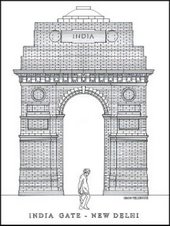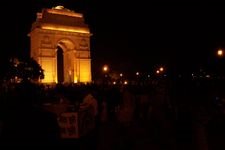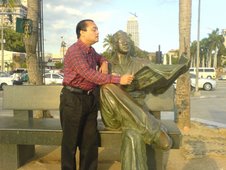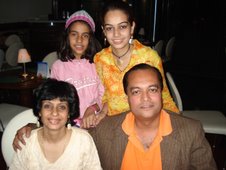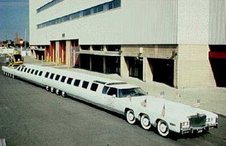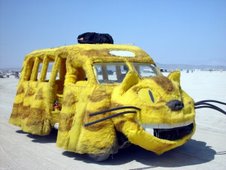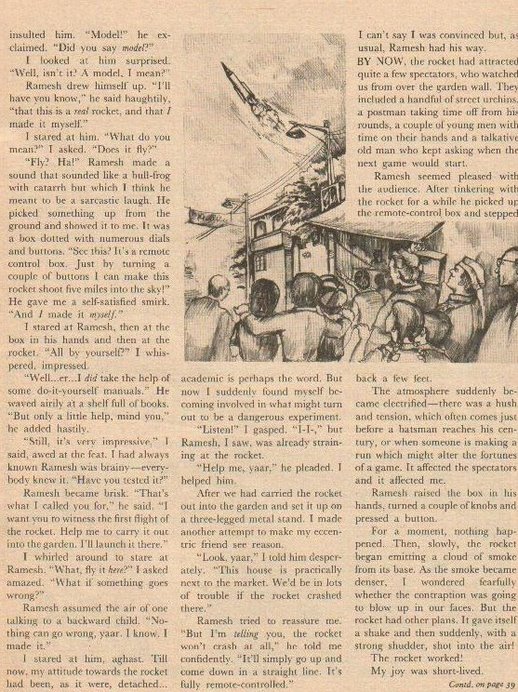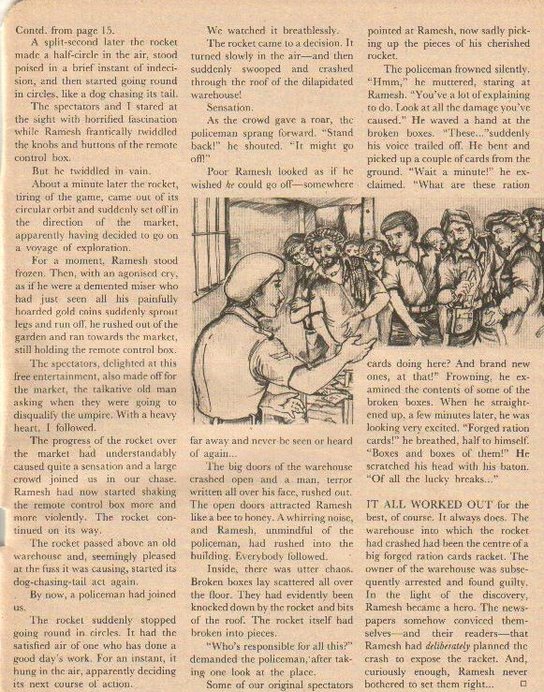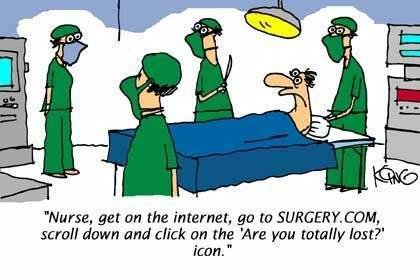Part II: A Holy Terror!
Ramesh and friend are comfortably settled in the Rajdhani Express at New Delhi, about to leave for Kolkata. Suddenly a police patrol boards the train with railway officials, searching for a prisoner who has just escaped fro Tihar Jail. The police have been tipped off that he might be bound for Kolkata. The search yields no sign of the man, so the police circulate his photograph to the passengers and leave, apologising for the delay. Ramesh’s friend settles down to a good read, but Ramesh is sure the convict must be on the train – in disguise, of course. He goes off to search and before long comes back triumphant. There’s a passenger in the compartment further down the train with such a thick beard that his whole face is covered up. Ramesh tells his friend to follow, and plans an exposure of the crook. As the train sways, Ramesh pretends to fall and grabs at the, surely, artificial beard!For a few minutes, there was utter pandemonium in the middle of the compartment. Piercing shrieks, cries of pain, angry shouts, words of apology and startled comments emanated in quick succession from the centre of action. As I rushed forward, passengers crowded around the spot where Ramesh had fallen. With my nerves all aquiver, I pushed through the crowd and reached Beardy’s seat in time to see Ramesh being helped to his feet by a young man. I stared at Ramesh’s target and saw that the beard was still in place!
Beardy’s face, or whatever was visible of it, was a dark red and his eyes were filled with tears of pain. “You – you --,” he spluttered at Ramesh, who was busy adjusting his spectacles. “What is the meaning of this?” he grimaced with pain. “You nearly tore off my beard by the roots!”
Before Ramesh could say anything, the gentleman in the seat next to Beardy spoke up, “It’s not his fault, my friend! The train swayed suddenly and this boy lost his balance. I saw it happen!”
“All right!” growled Beardy. He looked at Ramesh. “But walk more carefully next time!”
“Yes, sir! Sorry, sir! Lost my balance, sir! I hope I haven’t hurt you very much! I’m really sorry, sir!” Ramesh sounded very apologetic, indeed. In fact, the person I was beginning to feel sorry for was my friend Ramesh. Beardy’s real beard must have been a great blow to him! It comepletely ruled out the possibility of Beardy being the escapee – he could hardly have grown that beard in one day!
Safely back in our seats, I maintained a diplomatic silence. It wasn’t difficult to gauge how Ramesh was feeling, and I did not want to, as the saying goes, rub salt into the wound. Ramesh wore a disintegrated air, as if somebody had removed most of his interior organs. You see the same sort of thing in stuffed parrots when the sawdust has leaked out of them.
After a little while, our meals were served. Ramesh ate his in silence. I did not disturb him. After the meal, I looked at Ramesh to see if he wanted to make conversation. My friend, I saw, continued to look like a dead fish on a slab of ice. I returned to my detective novel.
A little while later, I heard a sound next to me. I turned my head. “Did you say something?” I asked Ramesh.
“I said: I
hate beards!” replied Ramesh. “Good night!”
The next morning found Ramesh greatly revived in spirit. When the train pulled into Dhanbad Station at eight o’clock for a fifteen minute halt, Ramesh went for a short walk on the platform and came back looking as revived as a watered flower. He tucked into his breakfast with the zeal of an athlete and made pleasant conversation.
Breakfast over, Ramesh leaned back in his seat, closed his eyes and cupped his hands below his chin. I recognized his ‘Sherlock Holmes’ pose immediately – he always assumes it when he wants to think aloud. “Tell me,” he began, his eyes still closed, “how many hours are we away from Kolkata?”
I knew Ramesh knew the answer as well as I did, but, just to humour him, I played along and lived the role of Watson. “We’re due to reach Howrah Station at eleven o’clock,” I replied. “It’s nine o’clock now.”
“So, we’ve just got two hours!” Ramesh opened his eyes. “We’ll have to work
fast!”
I was puzzled. “What do you mean?” I asked. “Do we have a
job to do before reaching Kolkata?”
“Of course!” exclaimed Ramesh. “We’ve got to catch this escapee!”
I stared, amazed, at my unpredictable friend. “You mean you’ve
still got that bee in your bonnet?” I asked unbelievingly. “Didn’t last night’s experience teach you anything? The escapee is not on this train!”
“I’m not so sure,” said Ramesh. “The policemen were acting on a tip-off when they searched our train. They must have had a good reason.”
“I don’t know about that,” I replied. Ramesh’s reasoning generally goes beyond me. “But, as you yourself have pointed out, this man, if he is on the train, must be disguised. Otherwise he would have been spotted long ago. So, how can we recognise him?”
“Let me think,” said Ramesh, frowning a little. “A thick beard is a natural disguise – but there’s only one heavily bearded man on the train.” He winced at the memory. “And he’s not our man – his beard is real.”
“The only other thick bearded men I’ve seen on this train,” I added, “are a couple of maulvis, three or four sardarjis and a man dressed like a Pathan.”
Ramesh sat bolt upright in his seat, his eyes shooting out of his head like a prawn’s.
“Of course!” exclaimed my friend. “That’s the answer! How come I didn’t think of it!”
I stared at Ramesh in surprise. “Have I just said something enlightening?” I asked.
Ramesh stared back at me, his eyes wide and gleaming. “This escapee must be disguised as somebody who looks
natural in a beard – whose beard one doesn’t give a second thought to!” he said excitedly. “He must be disguised as either a maulvi or a sardarji or a Pathan or some
natural beardy!”
I slowly let Ramesh’s words sink in. It was a plausible idea, I had to concede. “But there are quite a few such men on this train,” I objected. “How will you locate the escapee among them?”
“Simple,” replied Ramesh, continuing to look like one inspired. You could almost
hear his brain working overtime. “Remember the photograph of the escapee which the policemen showed us? Our quarry has a broken nose! Now, how many maulvis, sardarjis and Pathans on this train do you think do will have broken noses? Come on, let’s begin our search at once! We’ve no time to lose!”
“But – but --,” I spluttered.
“No buts, my friend. We’re working against time! I’ll cover the compartments in the forward portion of the train and you cover those towards the rear. Beardy falls in your portion and I don’t particularly want to meet
him again!” And Ramesh was off!
I reluctantly got to my feet and began my mission. There were no broken-nosed men, bearded or otherwise, in my compartment, and my spirits began to revive. I would simply take a stroll down the train and return. I had no doubt that I would have to disappoint Ramesh. I certainly did not share his conviction that the escapee was on our train.
In the next compartment were two bearded maulvis. A hurried glance in their direction was enough to satisfy me that neither of the two sported a broken nose. The next two compartments boasted of a handful of sardarjis – all with intact noses. While in the third compartment, behind ours, I kept my eyes averted from Beardy.
The fourth compartment yielded a bearded man dressed like a Pathan. Whether this gentleman actually was a Pathan or not, I cannot with authority state, but his nose had definitely never been broken. I entered the fifth compartment on light feet, quite enjoying my stroll, after all.
There was one young, fair-complexioned sardarji in the middle of the compartment. I briefly glanced at his long, acquiline nose and passed on. I saw no more bearded men in the compartment. I was about to turn back, when, through the entrance in front of me, appeared a bearded man wearing saffron robes and with a grey shawl thrown around his shoulders. His right hand was holding a necklace of prayer beads. It took half a second for the face of this sadhu, or holy man, to register – and then my heart stopped beating.
Overlooking a thick – very thick – black beard on this sadhu’s face was an extremely prominent broken nose! In spite of myself, I recognized that broken nose! The photograph of the escapee was still fresh in my memory – Ramesh had seen to that. And, to remove all doubts, were the man’s pig eyes!
My blood froze. I stood rooted as the sadhu brushed past me. Then, my senses returning, I quickly spun around and saw the saffron-robed sadhu lower himself into a window seat a little ahead.
My feet took off. With a life of their own, they quickly propelled me back through the compartments I had just traversed and, before I knew it, I was back in my seat. Ramesh had not yet returned from his expedition.
I sat there quietly, trying to regain my breath and recover from my shock. Ramesh had been right, after all! The escapee was actually on our train!
Ramesh returned shortly, looking very disappointed. But one look at my face and his gloom vanished. He guessed all. “Where?” he asked excitedly.
“In the fifth compartment behind ours,” I told him breathlessly. “In a window seat towards the rear of the compartment! He’s dressed up like a sadhu...holy man – saffron robes and all!”
“Thanks,” said Ramesh and rushed of, looking like a child about to be taken to the circus.
There was a strange look on Ramesh’s face when he returned a few minutes later. It was the look of a person who has just found himself on the receiving end of a miracle.
“You’re right!” he exclaimed. “That’s the man! Those pig eyes and that broken nose! It can’t be anybody else! He hasn’t even covered up his eyebrow!”
“What eyebrow?” I asked.
“His right eyebrow, of course! Didn’t you notice in the photograph? The escapee has a small scar running through his right eyebrow. This broken-nosed sadhu has the same scar!”
“What do we do now?” I asked quickly. The situation was becoming too much for me.
“We’ll contact the railway official in charge of all these attendants,” replied Ramesh. “He’ll be in the Pantry Car! Come on!”
Together, we rushed towards the Pantry Car, which was located in the forward portion of the train. We were an hour away from Kolkata and all the passengers were readying themselves for the end of the journey. Suitcases were being taken down from the overhead racks, coats and jackets were being put on, and magazines tucked into plastic bags. Ramesh and I had to rudely push past many passengers who were on their feet, preparing for arrival in Kolkata.
We rushed into the Pantry Car and headed for an authoritative looking gentleman in a black uniform with a Northern Railways badge pinned on it. The man looked up from a chart he was reading and stared at us in surprise.
“Yes?” he asked. “What can I do for you?”
“We’ve found him!” exclaimed Ramesh breathlessly, without any preliminaries. “We’ve located the escapee from Tihar Jail! He’s on this train!”
The railway official’s mouth fell open. He drew out a photograph from his jacket pocket. “You mean him?” he asked pointing to the escapee’s face on the photograph.
“That’s right!” replied Ramesh. “The escape is disguised as a sadhu! But his eyes and broken nose give him away!”
The official seemed impressed by Ramesh’s conviction. He turned to an attendant. “Call the guards, quick!” he ordered.
A moment later, the two policemen who were on guard duty in the train appeared, rifles and all. Ramesh and I quickly led them and the railway official through the various compartments whose occupants stared at us curiously, until we reached the one where the sadhu sat.
“In here!” proclaimed Ramesh. We swiftly moved down the aisle, and came abreast of the seat in which the broken-nosed sadhu was sitting. One quarry looked up – and then jumped to his feet! His eyes opened wide when he saw the guards and, with a muttered oath, he pushed past the man in the seat next to him and sprang into the aisle! Before the guards could react, he threw himself at them! As the guards fell away in surprise, the sadhu with astonishingly agility, pushed passed them and began running up the aisle!

Ramesh was the first to recover. “Stop him!” he shouted, and took off after the fleeing man. The railway official, the guards and I followed in hot pursuit.
In a thrice, our quarry had crossed the next compartment, Ramesh at his heels. I was right behind Ramesh. “He’s the escapee from Tihar Jail!” cried Ramesh to the startled passengers. “The beard is false!”
Ramesh and I entered the third compartment behind ours together – and were just in time to witness the climax. Beardy, who had clearly heard Ramesh’s shout, had jumped to his feet. We saw him swing around, stare at the sadhu rushing towards him, and then shoot out a leg.
The escapee never knew what hit him. One moment he was running – and the next minute he was flat on his face! Beardy had neatly tripped him!
Beardy hauled up the fallen escapee and grabbed his beard. The beard came away in his hands! The face that was revealed was unmistakably that of the escapee!
The guards reached the shaken escapee and caught hold of him. Beardy turned to Ramesh and me and grinned. “So that’s why you grabbed at my beard last night!” he exclaimed. “I should have realized what you were up to! I’m Inspector Ram Swaroop of Delhi Police, plain-clothes branch!” He flashed an identity card at us.
“You boys have done my job for me! There’ll be a reward in it!”
Ramesh and I looked at each other and grinned. Trust us to have mistaken a policeman for a crook!
The Rajdhani Express pulled into Kolkata’s Howrah Station a short while later. Ramesh’s uncle was there to receive us. “Welcome to Kolkata!” he exclaimed. “I hope you weren’t bored in the train.”
Ramesh looked at me, and there was a twinkle in his eyes. “No,” he answered. “We managed to find ways and means to keep ourselves occupied!”




















.JPG)
 Akbar had not forgotten about the contest he had arranged. He walked among his nobles and inspected each child carefully: “Hmm… That child is too fat. And that one there is too thin. And this child has eyes too far apart.” Finally: “Hmm…no, I still think my Khurram is the most beautiful child in Agra,” he announced. He turned to Birbal. “But why have you not brought a child?”
Akbar had not forgotten about the contest he had arranged. He walked among his nobles and inspected each child carefully: “Hmm… That child is too fat. And that one there is too thin. And this child has eyes too far apart.” Finally: “Hmm…no, I still think my Khurram is the most beautiful child in Agra,” he announced. He turned to Birbal. “But why have you not brought a child?” Akbar stared at the grimy little boy. “But-but, that is the ugliest child I have ever seen, Birbal! Have you dragged me all this way for a joke?”
Akbar stared at the grimy little boy. “But-but, that is the ugliest child I have ever seen, Birbal! Have you dragged me all this way for a joke?”  The child’s mother heard him. Picking up the boy in her arms and cuddling him, she turned to face the men. “How DARE you!” she cried, livid with anger. “Go and search all of Agra and see if you can find a lovelier child! Now go away, you blind fools, or I’ll give you a proper thrashing!”
The child’s mother heard him. Picking up the boy in her arms and cuddling him, she turned to face the men. “How DARE you!” she cried, livid with anger. “Go and search all of Agra and see if you can find a lovelier child! Now go away, you blind fools, or I’ll give you a proper thrashing!”







